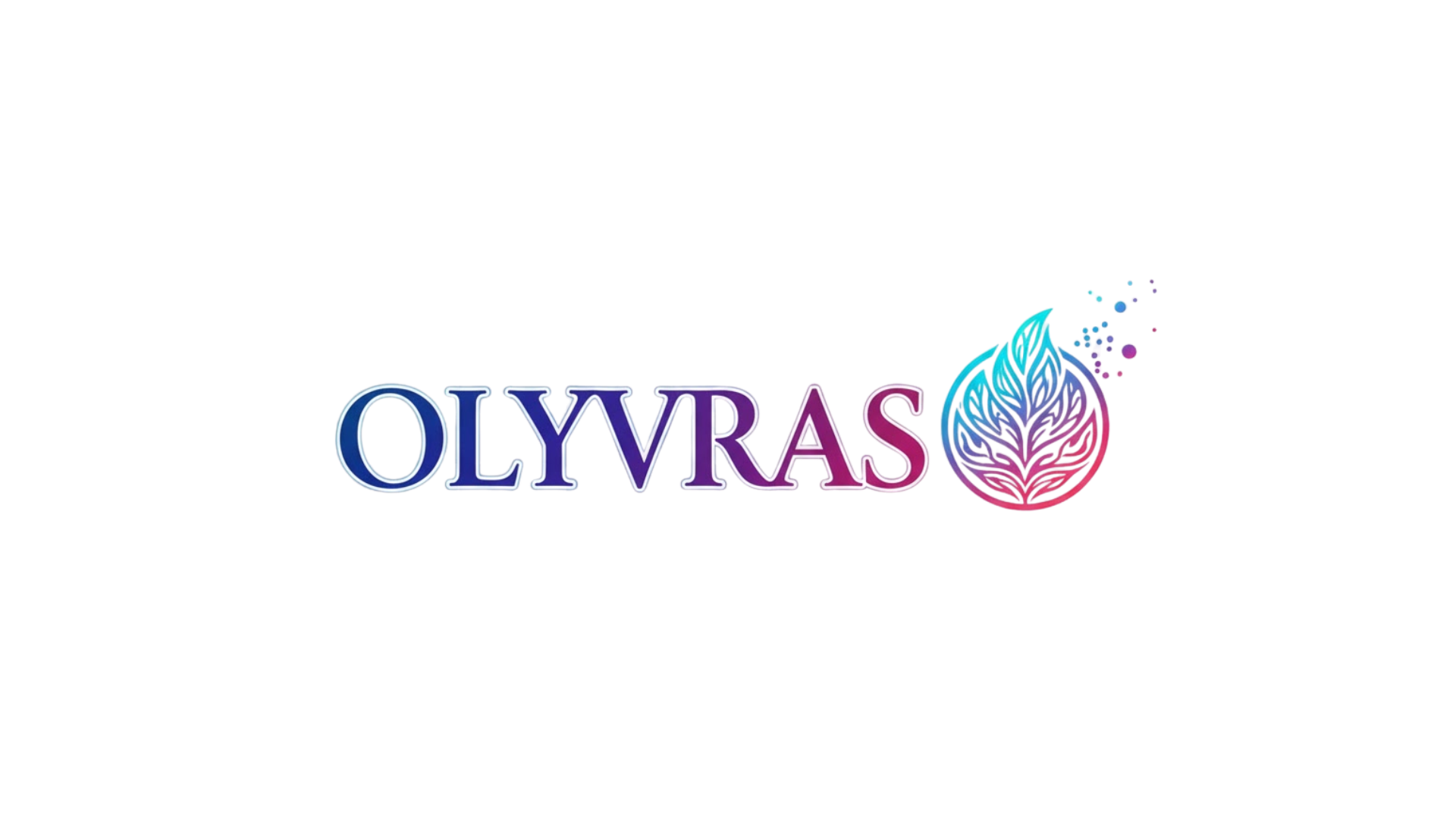Modern consumers and stakeholders demand more than quality products—they expect companies to operate with integrity throughout their entire supply chain, from raw material sourcing to final delivery.
🌍 Why Ethical Supply Chain Management Matters Now More Than Ever
The landscape of global commerce has transformed dramatically over the past decade. Supply chains have become increasingly complex, spanning multiple countries, involving countless suppliers, and touching the lives of millions of workers worldwide. This complexity has brought ethical considerations to the forefront of business strategy.
Organizations that fail to implement transparent and responsible supply chain practices face significant risks including reputational damage, legal consequences, consumer boycotts, and operational disruptions. Conversely, companies that prioritize ethical practices build stronger brand loyalty, attract top talent, and create sustainable competitive advantages in their markets.
Recent studies indicate that over 70% of consumers are willing to pay premium prices for products from companies with demonstrable ethical supply chain practices. This shift represents a fundamental change in market dynamics, where transparency and responsibility have become key differentiators rather than optional extras.
🔍 Understanding the Foundation of Ethical Supply Chains
Ethical supply chain management encompasses multiple dimensions that extend beyond simple compliance with local regulations. It requires a comprehensive approach that addresses human rights, environmental sustainability, fair labor practices, and transparent business operations throughout every link in the supply chain.
Core Principles That Define Ethical Operations
At the heart of ethical supply chain management lie several foundational principles. First and foremost is respect for human dignity, which means ensuring safe working conditions, fair wages, and the absence of forced or child labor. This principle extends to protecting workers’ rights to organize and bargain collectively.
Environmental stewardship represents another critical pillar. Companies must minimize their ecological footprint by reducing emissions, managing waste responsibly, conserving natural resources, and supporting biodiversity. This commitment should flow through every tier of the supply chain, from raw material extraction to product disposal.
Transparency and accountability form the third essential element. Organizations must be willing to disclose information about their suppliers, manufacturing processes, and business practices. This openness allows stakeholders to verify claims and hold companies responsible for their commitments.
📊 Building a Transparent Supply Chain Framework
Creating transparency within complex global supply chains requires systematic approaches and robust methodologies. Companies cannot simply rely on surface-level supplier declarations; they must implement comprehensive verification and monitoring systems.
Mapping Your Complete Supply Network
The journey toward transparency begins with understanding exactly who comprises your supply chain. This process, known as supply chain mapping, involves identifying all suppliers, sub-suppliers, and service providers involved in bringing products to market.
Effective mapping extends beyond first-tier suppliers to include second, third, and even fourth-tier providers. Many ethical violations occur deep within supply networks, where visibility traditionally diminishes. Companies must invest in technology and relationships that enable comprehensive network visualization.
Modern supply chain mapping utilizes digital tools, blockchain technology, and collaborative platforms to track materials and components throughout their journey. These systems create permanent, tamper-proof records that enhance accountability and facilitate rapid response when issues arise.
Establishing Robust Supplier Assessment Protocols
Once supply networks are mapped, organizations must implement rigorous assessment protocols to evaluate supplier practices. These assessments should examine multiple factors including labor conditions, environmental practices, business ethics, and financial stability.
Effective supplier assessments combine desktop research, on-site audits, worker interviews, and third-party certifications. Companies should avoid relying exclusively on announced audits, as these often fail to reveal true working conditions. Unannounced visits and confidential worker surveys provide more accurate insights.
Assessment frameworks should be standardized yet flexible enough to account for regional differences and industry-specific requirements. Leading companies develop detailed scorecards that quantify supplier performance across multiple ethical dimensions, enabling data-driven decision-making and continuous improvement tracking.
⚖️ Implementing Responsible Sourcing Strategies
Responsibility in supply chain management requires proactive strategies that prevent problems rather than merely reacting to crises. Companies must embed ethical considerations into procurement decisions, supplier relationships, and operational processes.
Developing Comprehensive Supplier Codes of Conduct
A well-crafted supplier code of conduct establishes clear expectations for ethical behavior throughout the supply chain. These documents should address specific issues including minimum wage requirements, maximum working hours, health and safety standards, environmental protections, and anti-corruption measures.
Codes of conduct must be more than aspirational documents; they require enforcement mechanisms, regular reviews, and consequences for non-compliance. Suppliers should be required to acknowledge and commit to these standards through formal agreements that establish accountability.
Translation of codes into local languages ensures understanding across diverse supplier bases. Companies should also provide training and resources to help suppliers meet requirements, recognizing that capacity-building is often necessary to achieve compliance.
Creating Collaborative Supplier Partnerships
The most effective ethical supply chains are built on collaborative relationships rather than purely transactional interactions. Companies should work alongside suppliers to identify challenges, develop solutions, and share best practices that benefit all parties.
Long-term partnerships enable suppliers to invest in improvements with confidence that they will maintain business relationships. Short-term procurement strategies often incentivize cost-cutting measures that compromise ethical standards. Stable, fair partnerships create foundations for sustainable improvements.
Leading organizations establish supplier development programs that provide training, technical assistance, and sometimes financial support to help partners enhance their ethical performance. These investments strengthen the entire supply chain while demonstrating genuine commitment to shared values.
🛡️ Technology’s Role in Enhancing Transparency
Digital innovation has revolutionized supply chain transparency, providing unprecedented visibility and accountability mechanisms. Companies now have access to sophisticated tools that would have been impossible just a few years ago.
Leveraging Blockchain for Immutable Record-Keeping
Blockchain technology creates permanent, transparent records of transactions and product movements throughout supply chains. This distributed ledger approach prevents data manipulation while enabling multiple stakeholders to access verified information.
Companies using blockchain can track products from origin to consumer, documenting every transfer, process, and certification along the way. This capability is particularly valuable for industries where authenticity and ethical sourcing are critical, such as diamonds, coffee, and electronics.
Implementation of blockchain requires collaboration across supply chain partners and investment in compatible systems. However, the resulting transparency and trust often justify these upfront costs through reduced fraud, improved efficiency, and enhanced brand reputation.
Utilizing AI and Data Analytics for Risk Assessment
Artificial intelligence and advanced analytics enable companies to process vast amounts of data to identify potential ethical risks before they escalate. These systems can monitor news sources, social media, trade data, and other indicators to flag concerning patterns.
Predictive analytics help organizations prioritize audit resources by identifying high-risk suppliers and geographic regions. Machine learning algorithms continuously improve risk models based on historical data and emerging trends, creating increasingly accurate threat assessments.
Real-time monitoring systems alert companies to potential issues such as unauthorized subcontracting, suspicious shipment patterns, or negative reports about supplier facilities. This immediate awareness enables rapid response and prevents minor problems from becoming major crises.
👥 Protecting Human Rights Throughout the Supply Chain
Human rights protection represents perhaps the most critical dimension of ethical supply chain management. Companies must ensure that their business activities do not contribute to exploitation, abuse, or degradation of workers anywhere in their supply networks.
Eliminating Forced Labor and Modern Slavery
Despite global prohibition, forced labor and modern slavery persist in various forms throughout international supply chains. Companies must implement robust detection and prevention mechanisms to ensure they are not inadvertently benefiting from these abuses.
Warning signs of forced labor include workers holding documents, excessive overtime, wage deductions, restricted movement, and inadequate living conditions. Effective detection requires skilled auditors who understand local contexts and can conduct confidential interviews with workers.
Prevention strategies include careful supplier vetting, worker grievance mechanisms, and collaboration with NGOs and labor organizations. Companies should also support legislation and enforcement actions that penalize forced labor and protect vulnerable workers.
Ensuring Fair Wages and Safe Working Conditions
Beyond eliminating the worst abuses, ethical supply chains must ensure positive working conditions including fair compensation, reasonable hours, and safe environments. This commitment often requires companies to pay higher prices to suppliers who maintain better standards.
Living wage initiatives recognize that legal minimum wages often fail to provide adequate income for basic needs. Progressive companies work with suppliers to ensure workers earn enough to support themselves and their families with dignity.
Workplace safety encompasses physical hazards, chemical exposures, fire risks, and psychological wellbeing. Regular safety audits, worker training programs, and investment in protective equipment and facility improvements are essential components of responsible supply chain management.
🌱 Environmental Responsibility as a Supply Chain Priority
Environmental sustainability has evolved from a peripheral concern to a central business imperative. Supply chains account for the majority of most companies’ environmental footprints, making green supply chain management essential for meaningful impact.
Reducing Carbon Emissions Across Transportation Networks
Transportation represents a significant source of supply chain emissions. Companies can reduce their carbon footprint through route optimization, modal shifts toward less carbon-intensive options, vehicle efficiency improvements, and investment in alternative fuels.
Collaborative logistics approaches, where multiple companies share transportation capacity, maximize vehicle utilization and minimize empty miles. Digital platforms facilitate these partnerships by matching available cargo space with shipping needs.
Many organizations now prioritize suppliers with strong environmental credentials and locations that minimize transportation distances. Near-shoring and regional sourcing strategies reduce emissions while providing additional benefits such as faster delivery times and reduced supply chain risks.
Implementing Circular Economy Principles
Linear supply chains that extract, produce, consume, and dispose create massive waste and environmental degradation. Circular economy approaches redesign systems to eliminate waste, keep materials in use, and regenerate natural systems.
Product design plays a crucial role in circularity by ensuring items can be easily repaired, refurbished, or recycled. Supply chains must adapt to accommodate reverse logistics, material recovery, and remanufacturing processes that close product loops.
Companies implementing circular principles often discover significant cost savings alongside environmental benefits. Recovered materials reduce procurement expenses, while product longevity and repair services create new revenue streams and deepen customer relationships.
📈 Measuring and Reporting Supply Chain Performance
What gets measured gets managed. Companies committed to ethical supply chains must establish clear metrics, collect reliable data, and report transparently on their progress and challenges.
Developing Meaningful Key Performance Indicators
Effective KPIs balance quantitative metrics with qualitative assessments. Financial measures such as supplier audit scores, percentage of certified suppliers, and training completion rates provide concrete benchmarks. However, these should be complemented by worker satisfaction surveys, stakeholder feedback, and contextual evaluations.
Leading companies track both inputs (investments in audits, training programs) and outcomes (actual improvements in working conditions, environmental metrics). This comprehensive approach prevents gaming of metrics and ensures genuine progress toward ethical objectives.
Benchmarking against industry standards and competitors helps organizations understand their relative performance and identify improvement opportunities. Industry collaborations that establish common metrics enable more meaningful comparisons and drive collective progress.
Transparent Public Reporting and Stakeholder Communication
Annual sustainability reports have become standard practice, but truly transparent companies go beyond glossy publications that highlight successes while obscuring challenges. Honest reporting acknowledges problems, explains corrective actions, and demonstrates accountability.
Modern reporting frameworks such as GRI, SASB, and TCFD provide standardized structures that enhance comparability and credibility. Companies should align their disclosures with these frameworks while tailoring content to address stakeholder priorities and industry-specific issues.
Digital platforms enable real-time transparency that goes beyond annual reports. Some companies now provide public access to supplier lists, audit results, and performance dashboards, demonstrating unprecedented openness and inviting external scrutiny.
🤝 Collaboration and Industry-Wide Progress
Individual company efforts, while valuable, cannot fully address systemic supply chain challenges. Industry collaboration, multi-stakeholder initiatives, and policy engagement are essential for creating lasting change.
Participating in Cross-Industry Alliances
Collaborative platforms bring together companies, NGOs, unions, and governments to tackle shared challenges. These alliances pool resources, share best practices, and establish industry standards that level the playing field and prevent a race to the bottom.
Examples include the Responsible Business Alliance in electronics, the Fair Labor Association in apparel, and the Roundtable on Sustainable Palm Oil. These organizations conduct joint audits, develop shared supplier training programs, and advocate for policy improvements.
Participation in such initiatives demonstrates commitment to continuous improvement and provides access to expertise and resources that individual companies cannot easily develop independently. However, membership must be backed by genuine engagement rather than serving merely as a public relations credential.
Supporting Regulatory Frameworks and Enforcement
Voluntary corporate initiatives are important but insufficient without strong regulatory frameworks that establish minimum standards and create legal accountability. Progressive companies support legislation that requires supply chain transparency and penalizes violations.
Recent laws such as the UK Modern Slavery Act, California Transparency in Supply Chains Act, and proposed EU Corporate Sustainability Due Diligence Directive are reshaping the regulatory landscape. Companies should view these regulations as opportunities to demonstrate leadership rather than compliance burdens.
Effective enforcement requires adequate resources for labor inspectorates, customs agencies, and judicial systems. Companies can support enforcement through cooperation with investigations, investment in capacity-building for enforcement agencies, and public advocacy for stronger protections.
🎯 Creating a Culture of Ethical Awareness
Sustainable ethical supply chain management requires embedding values throughout organizational culture. Training, leadership commitment, and incentive structures must all reinforce ethical priorities.
Procurement teams need training on ethical considerations and support to prioritize these factors alongside traditional metrics like cost and quality. Performance evaluations should reward ethical sourcing decisions even when they involve short-term trade-offs.
Leadership sets the tone for organizational priorities. Executives must consistently communicate commitment to ethical supply chains, allocate resources to support implementation, and personally engage with suppliers and workers to understand conditions firsthand.
Whistleblower protections and grievance mechanisms enable employees to report concerns without fear of retaliation. These channels provide early warning of potential problems and demonstrate that the organization genuinely values integrity over profit maximization.

💡 Navigating Challenges and Building Resilience
Implementing ethical supply chain management involves significant challenges including cost pressures, supplier resistance, limited visibility, and competing priorities. Successful companies develop strategies to navigate these obstacles while maintaining commitment to core values.
Cost concerns often emerge as the primary barrier to ethical improvements. However, the total cost of ownership approach reveals that ethical suppliers often deliver better long-term value through higher quality, greater reliability, and reduced risk of disruptions or reputational damage.
Building resilient supply chains requires diversification of supplier bases, investment in contingency planning, and development of alternative sourcing options. Ethical practices enhance resilience by creating stronger supplier relationships and reducing vulnerabilities to scandals or enforcement actions.
The journey toward fully transparent and responsible supply chains is ongoing and never complete. Markets evolve, risks change, and stakeholder expectations increase. Companies must embrace continuous improvement mindsets and remain committed to progress even when challenges arise.
Organizations that successfully navigate this complex landscape will find themselves better positioned for long-term success in an increasingly conscious marketplace where transparency and responsibility are not optional extras but fundamental requirements for sustained business viability.
Toni Santos is a global-policy researcher and ethical-innovation writer exploring how business, society and governance interconnect in the age of interdependence. Through his studies on corporate responsibility, fair trade economics and social impact strategies, Toni examines how equitable systems emerge from design, policy and shared vision. Passionate about systemic change, impact-driven leadership and transformative policy, Toni focuses on how global cooperation and meaningful economy can shift the scenario of globalization toward fairness and purpose. His work highlights the intersection of economics, ethics and innovation — guiding readers toward building structures that serve people and planet. Blending policy design, social strategy and ethical economy, Toni writes about the architecture of global systems — helping readers understand how responsibility, trade and impact intertwine in the world they inhabit. His work is a tribute to: The global commitment to equity, justice and shared prosperity The architecture of policy, business and social impact in a connected world The vision of globalization as cooperative, human-centred and regenerative Whether you are a strategist, policymaker or global thinker, Toni Santos invites you to explore ethical globalization — one policy, one model, one impact at a time.




